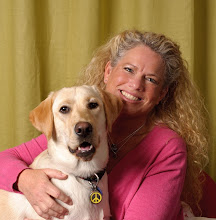

We were nearing the end of another busy day at the hospital. Dirty towels and surgical drapes were piled high in the laundry basket. Some instruments were soaking in the bucket of disinfectant and others were finishing up in the autoclave, getting sterilized for tomorrows procedures. Patient charts were seperated into different piles, some for the nurses to make follow up calls, others for me to complete writing my medical notes and plans for patinet care. But one of the tell-tale signs that the day was coming to a close was the presence of Noodles and Twitchi, our hopsital cats. Without fail, every evening starting around 4:30 or 5, they make there way out from where ever they had been hanging out, usually working pretty hard, sleeping on a cat post or in one of the receptionist's chairs. Then they oh so patiently just sit-and stare-and wait. It is kind of creepy, actually, like the gathering of the birds in Alfred Hitchcocks movie. There is no mistaking what they want-come on humans-don't forget us (as if we ever have!) It is dinner time!
Anyone who has ever had a pet knows that they can tell time-no watch or clock needed.
We can say they have a "biological clock" or an "internal clock." It actually is an anatomical site within the animal's hypothalamus, an area of the brain directly above the place where the optic nerves cross. Composed of about 20,000 neurons, this area is known as the suprachiasmatic (above the cross) nucleus. It takes in variations in the available light from the retina, (the structure at the back of the eye) then transmits this information to the pineal gland. The pineal gland is a small, cone-shaped organ in the brain of most vertebrates that secretes the hormone melatonin. It is also called epiphysis, or pineal body.
There is a complex process allowing this transmission. Genes are encoding proteins and these genes will then regulate the functions of the cells of the pinel gland. This is when the cells start secreting the melatonin hormone. Once in the bloodstream, melatonin peaks in the daylight hours and ebbs at night causing wakefulness and sleepiness.
 The circadian system is the total of all these neurons, their cells and the proteins and hormones they secrete. The system is not dependent on light and dark cycles, however. That is why animals can re-set their internal clocks as long as the new pattern is fairly regular and sufficiently important. In the case of Noodles and Twitchi-putting food in their bowls is plenty important!
The circadian system is the total of all these neurons, their cells and the proteins and hormones they secrete. The system is not dependent on light and dark cycles, however. That is why animals can re-set their internal clocks as long as the new pattern is fairly regular and sufficiently important. In the case of Noodles and Twitchi-putting food in their bowls is plenty important!Dogs and cats aren't the only ones who have these internal clocks. Species as diverse as fruit flies, humans and birds have circadian rythyms, and they don't have to be exactly one day long. (In Latin, "circadian" means "approximately one day.") Two examples are the heat cycles of domestic dogs, which usually occur about twice a year, and the menstral cycles of human females occuring approximately every 28 days.
So tomorrow night when your critters start circling up in the kitchen or come over and lay down near their food dish-raising those expressive eyebrows at you (as if you really don't know what they could want-we are dumb humans after all) , remember how complex a thing this circadian rythym process really is-and why when Noodles and Twitchi get ready to "retire" from their very busy jobs here, they probably don't need that gold watch. They do just fine with their internal clocks.
Peace,
DrReneigh


